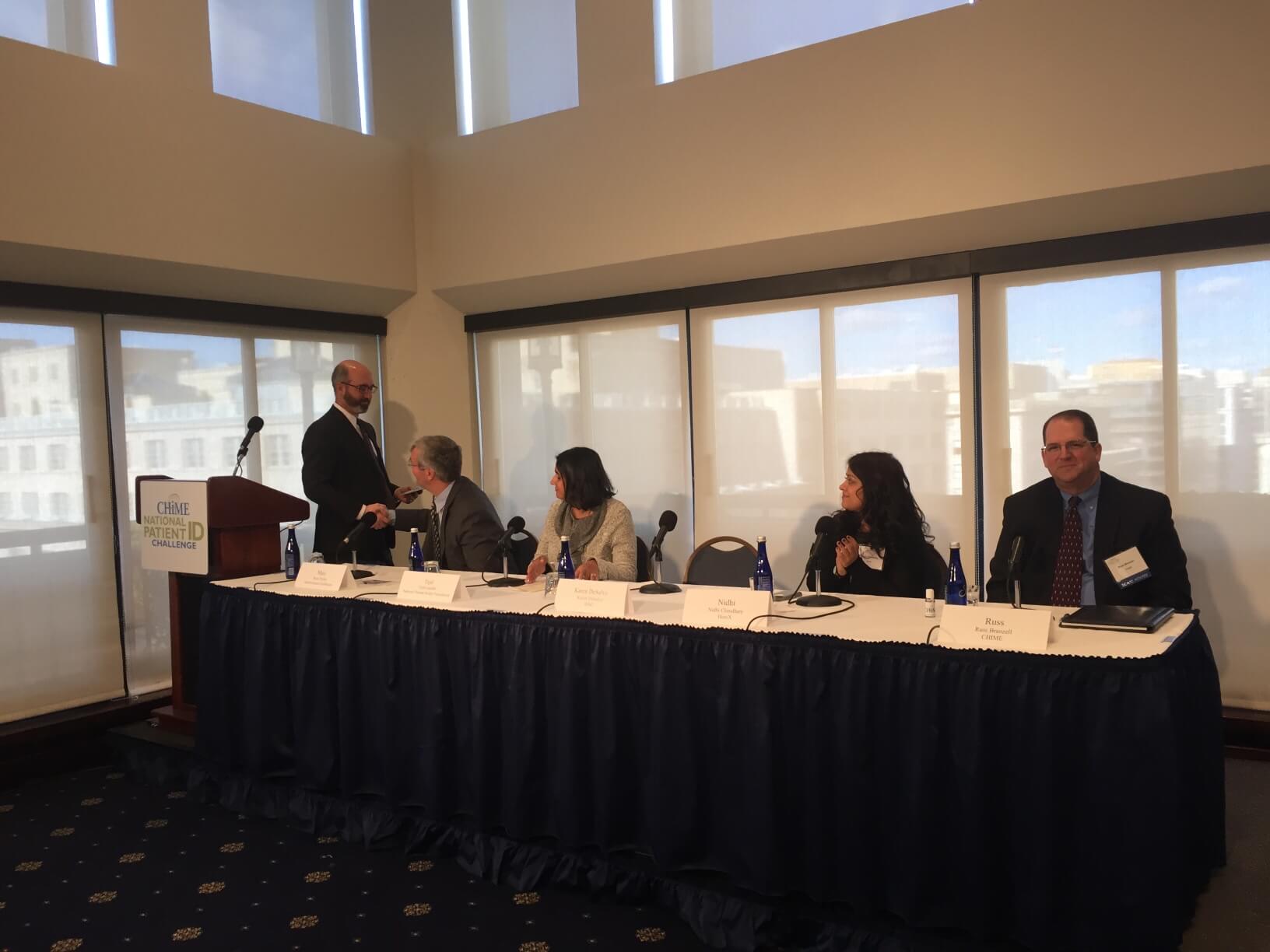WASHINGTON – A group of medical industry leaders offered a $1 million reward on Tuesday to anyone with a workable idea for a system enabling doctors to quickly and accurately identify patients.
In the United States, electronic medical records are stored in a patchwork of mismatching databases, each run by an individual healthcare system.
When patients go to the emergency room, see a new doctor or consult a specialist, it’s a challenge to get their medical records transferred along with them. But before the medical community can tackle that problem, it faces a more basic hurdle: correctly identifying the person sitting in the doctor‘s office waiting to be treated.
Tejal Gandhi, CEO of the National Patient Safety Foundation, said that misidentifying patients leads to avoidable medical errors. She said the most common error, prescribing patients the wrong medication, sends 700,000 people to the emergency room each year.
“This is a situation that should have been fixed long ago,” said Russell Branzell, ceo of the College of Healthcare Information Management Executives. His organization put out the $1 million challenge to try to spark a creative solution to the patient ID problem from the private sector, because it is unlikely that one will come from the public sector.
Because of a 17-year-old congressional ban on creating a unique national identifier for patients, the Department of Health and Human Services cannot spend money to invest in its own solution. However, the department’s acting assistant secretary, Karen DeSalvo, said the country still needs a national system to identify patients. At a National Press Club news conference, DeSalvo pledged that HHS would do what it could to help.
“But we cannot and will not do this alone,” she said. “We will need the private sector to work with us. … This patient identification challenge is a perfect example of how people and
organizations, like CHIME (College of Healthcare Information Management Executives), can step up and show leadership and help us to get to a place where we know we ought to be.”
The healthcare information college is still looking for backers to fund the prize, but spokesman Matthew Weinstock said that if none comes forward it is committed to paying out the money from its own budget.
Nidhi Chaudhary, a vice president of HeroX, the group that co-sponsored the National Patient ID challenge and makes its living organizing similar competitions, said that public challenges have tremendous potential for finding solutions to seemingly entrenched problems.
“Challenges give us permission and the power to look to the crowd outside of people who we assume have the answers,” Chaudhary said. “New ideas and reinventions of old ideas can come from anywhere and anyone.”
According to the HeroX website, anyone with an idea can enter the challenge at https://herox.com/PatientIDChallenge.

